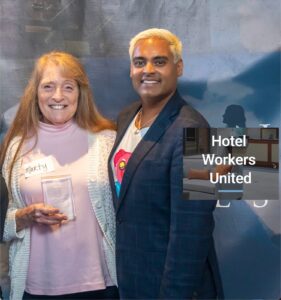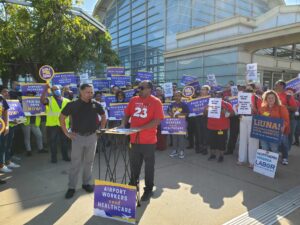 A guest contribution from Catholic Labor Network member Tony Miller
A guest contribution from Catholic Labor Network member Tony Miller
When the Richmond Times Dispatch asked Marty Barnett about why she supports the effort to unionize, she said, “We are not peons. We are human beings” and “We need to be respected — and that doesn’t just go for me or [the people who work at] this hotel — it should be a global thing.”
Think about the last time you or your family stayed at a hotel. Most hotels in America are charging anywhere from $150 to $300, some more, per night. In today’s economy, that is a lot of money to spend for 48 hours in a hotel room you barely use. You probably checked into a hotel room that was far cleaner than your room at home, housekeeping is tough work.
If I told you that for $300-$600, the lady who cleaned that room back to excellence only got $6-$7, how would you feel about that? Worst of all, she was probably forced to clean that room in under 30 minutes, and then told to clean up to 20 more before her day was over. Hotel owners generate tons of cash, but they typically pay their hardest working folks very low wages. How can a housekeeper with children afford to live on $6 per room cleaned?
On Thursday Sep 29, Hotel Workers United successfully filed their Petition for Certification with the National Labor Relations Board (NLRB). Our first hotel we seek to organize is the Hampton Inn Richmond West Innsbrook in Glen Allen, VA. The hotel has about 18 total employees. We have gathered cards from many members of the team including housekeeping, front desk, and breakfast hostess. Marty, pictured above, is a breakfast hostess. We not only hope to win an election, but to negotiate with ownership for better wages and working conditions.
We know the owners of large hotel portfolios can afford to pay more, and we want to continue to raise awareness and support around our organizing efforts. For more information, please visit www.hotelworkersunited.com or email us at [email protected].


